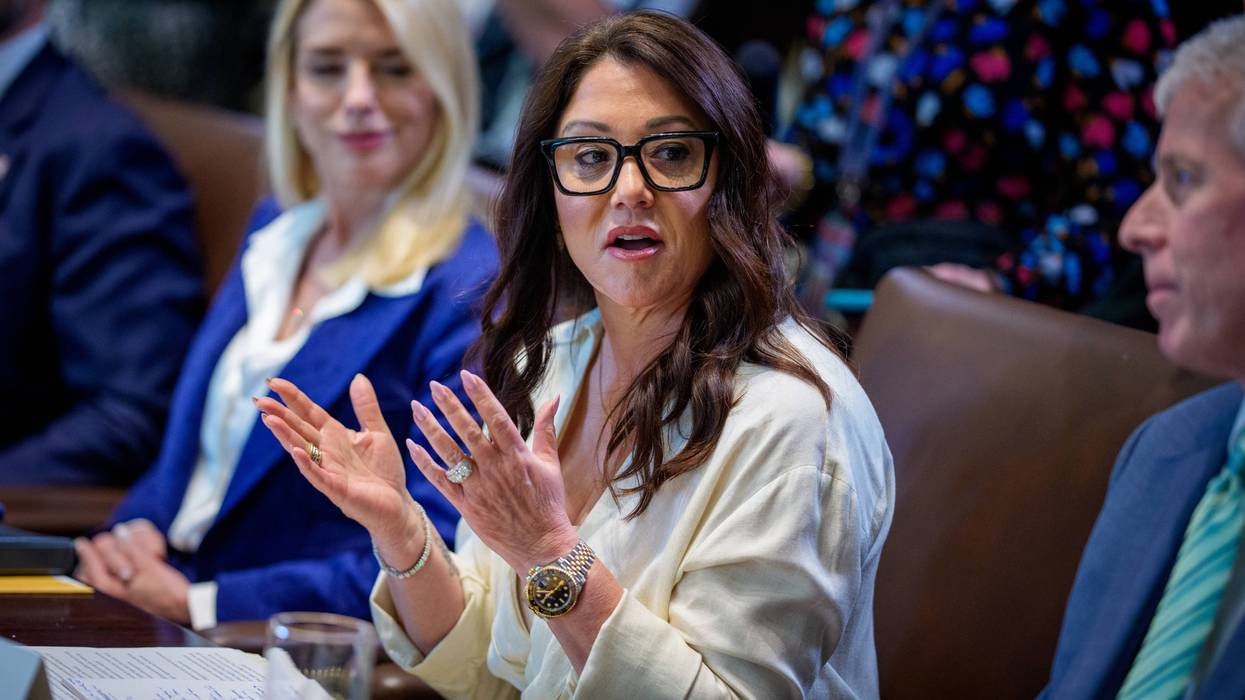Responding to a video clip of Vance on social media, Ocasio-Cortez said, "The only thing longer than my pause to think was their silence to his joke," with a skull emoji, generally used to convey laughing to death.
Vance previously took aim at Ocasio-Cortez during a Tuesday interview with Fox News' Martha MacCallum, who asked him to weigh in on footage from Munich last Friday, when Ocasio-Cortez was asked whether the United States should send troops to defend Taiwan in the event of a Chinese invasion.
The congresswoman began, "Um, you know, I think that, uh, this is such a, a—you know, I think that—this is a, um—this is of course, a, uh, a very long-standing, um, policy of the United States."
While Fox cut off the clip there, Ocasio-Cortez added: "And I think what we are hoping for is that we want to make sure that we never get to that point, and we want to make sure that we are moving in all of our economic, research, and our global positions to avoid any such confrontation and for that question to even arise."
Describing the congresswoman as "a person who doesn't know what she actually thinks," the vice president—who may run as Trump's successor in 2028—called her answer "embarrassing" and "the most uncomfortable 20 seconds of television I've ever seen."
"Does anybody really believe that AOC has very thoughtful ideas about the global world order or about what the United States should do with our policy in Asia or our policy Europe?" Vance added. "No, this is a person who is mouthing the slogans that somebody else gave her."
Ocasio-Cortez is seeking another term in the House of Representatives this cycle, though she has fueled speculation of a possible Senate or presidential run in 2028, including with her trip to Germany, where she argued that "working-class-centered politics" is key to defeating the "scourge of authoritarianism."
Her congressional campaign noted the attack from Vance in a Thursday email to supporters: "Did you see what JD Vance said about Alexandria? He said she's 'somebody who doesn't know what she actually thinks.' JD Vance is wrong."
It goes on to detail some of "what Alexandria thinks," including:
- In the wealthiest nation in the history of the world, when a person gets sick, they shouldn't go bankrupt;
- A minimum wage should cover the minimum cost to live; and
- Homes are not slot machines for investors and Wall Street to extort working families out of every last dollar that they have.
"Alexandria lives in JD Vance's head rent-free because she won't back down from fighting for what's right," the email adds. "But she can't do this work alone. She needs a movement alongside her."
The congresswoman wasn't alone is ridiculing Vance after he mocked her on Thursday. Journalist Mehdi Hasan said that "it's so funny that he tries to make a joke about AOC and gets no laughs."
It is "a reminder" that Ocasio-Cortez, California Gov. Gavin Newsom, "and the rest of the top-tier Dems could make mincemeat out of this guy in 2028," Hasan declared. "He has the charisma of a broken wooden chair and the humor of Elon Musk."





